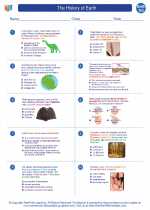Phase Transition
A phase transition refers to the transformation of a substance from one state of matter to another. The three primary states of matter are solid, liquid, and gas, and phase transitions occur when a substance undergoes a change in temperature or pressure. These transitions are fundamental in understanding the behavior of matter and are crucial in various scientific fields, including physics, chemistry, and earth science.
Types of Phase Transitions
There are several types of phase transitions, each associated with specific changes in the arrangement and motion of particles within a substance:
- Melting (Solid to Liquid): This phase transition occurs when a solid substance is heated to its melting point, at which the intermolecular forces are overcome, and the substance changes into a liquid state.
- Freezing (Liquid to Solid): The reverse of melting, freezing happens when a liquid substance is cooled to its freezing point, causing the particles to form a solid crystalline structure.
- Vaporization (Liquid to Gas): Vaporization occurs when a liquid substance is heated to its boiling point, leading to the formation of a gas as the intermolecular forces are overcome.
- Condensation (Gas to Liquid): This phase transition takes place when a gas is cooled to its condensation point, causing the particles to come together and form a liquid.
- Sublimation (Solid to Gas): Sublimation occurs when a solid substance is heated to its sublimation point, bypassing the liquid state and transforming directly into a gas.
- Deposition (Gas to Solid): The reverse of sublimation, deposition happens when a gas is cooled to its deposition point, causing the particles to directly form a solid without passing through the liquid state.
Study Guide
For a comprehensive understanding of phase transitions, consider the following study guide:
- Review the concept of intermolecular forces and their role in maintaining the structure of different phases of matter.
- Examine the relationship between temperature and pressure in inducing phase transitions.
- Explore the phase diagrams of various substances to understand the conditions under which different phase transitions occur.
- Investigate real-world applications of phase transitions, such as the role of evaporation and condensation in the water cycle and the significance of phase transitions in materials science and engineering.
- Practice identifying and predicting phase transitions based on given temperature and pressure conditions.
- Conduct experiments or simulations to observe and analyze phase transitions in different substances.
By studying phase transitions, you will gain valuable insights into the behavior of matter under changing conditions, laying the foundation for a deeper understanding of thermodynamics, material properties, and natural phenomena.
.◂Earth Science Worksheets and Study Guides High School. The History of Earth

 Worksheet/Answer key
Worksheet/Answer key
 Worksheet/Answer key
Worksheet/Answer key
